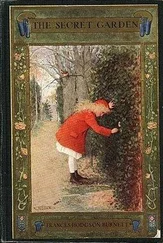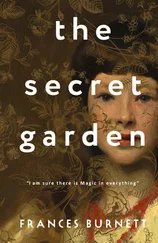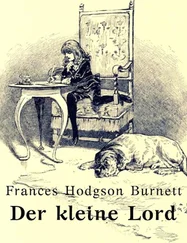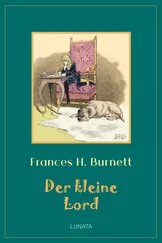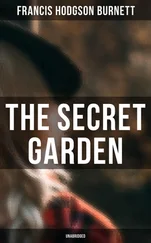Mary found out that she had neither father nor mother left. They died in the night, and the servants left the house quickly. That was why the place was so quiet. It was true that there was no one in the bungalow but herself and the little snake.
Chapter II
Mistress Mary quite contrary
Mary knew very little of her mother. She did not miss her at all, in fact, she was a self-absorbed child.
They took her to the English clergyman’s house. She knew that she was not going to stay there long. She did not want to stay. The English clergyman was poor and he had five children. They wore shabby clothes and were always quarreling and snatching toys from each other. Mary hated their untidy bungalow and was very disagreeable to them. Nobody wanted to play with her.
Basil was a little boy with impudent blue eyes and a turned-up nose and Mary hated him. She was playing by herself under a tree. She was making heaps of earth and paths for a garden and Basil came and stood near to watch her. Suddenly he made a suggestion.
“Why don’t you put a heap of stones there?” he said. “There in the middle,” and he leaned over her to point.
“Go away!” cried Mary. “Go away!”
For a moment Basil looked angry, and then he began to tease. He was always teasing his sisters. He danced round and round her and made faces [5] made faces – кривлялся
and sang and laughed:
“Mistress Mary, quite contrary,
How does your garden grow?
With silver bells, and cockle shells,
And marigolds all in a row.”
He sang it until the other children heard and laughed, and sang “Mistress Mary, quite contrary”. After that they called her “Mistress Mary Quite Contrary” when they spoke of her to each other, and often when they spoke to her.
“They will send you home,” Basil said to her, “at the end of the week. And we’re glad of it.”
“I am glad of it, too,” answered Mary. “Where is home?”
“She doesn’t know where home is!” said Basil, with scorn. “It’s England, of course. Our grandmama lives there and our sister Mabel came to her last year. You are not going to your grandmama. You have none. You are going to your uncle. His name is Mr. Archibald Craven.”
“I don’t know anything about him,” snapped Mary.
“I know you don’t,” Basil answered. “You don’t know anything. Girls never do. I heard father and mother talking about him. He lives in a great, big, desolate old house in the country and no one goes near him. He’s a hunchback, and he’s horrid.”
“I don’t believe you,” said Mary; and she turned her back and stuck her fingers in her ears, because she did not want to listen any more.
Mrs. Crawford told her that night that she was going to sail away to England in a few days and go to her uncle, Mr. Archibald Craven, who lived at Misselthwaite Manor. Mary looked so stony and stubbornly uninterested that they did not know what to think about her. They tried to be kind to her, but she only turned her face away when Mrs. Crawford attempted to kiss her.
“She is such a plain child,” Mrs. Crawford said pityingly, afterward. “And her mother was such a pretty creature. She had a very pretty manner, too, and Mary has the most unattractive ways I ever saw in a child. The children call her ‘Mistress Mary Quite Contrary’. Though it’s naughty of them, I can understand it. Her mother scarcely ever looked at her. When her Ayah was dead, no one thought about the girl. The servants ran away and left her all alone in that deserted bungalow. Colonel McGrew said he was very surprised when he opened the door and found her in the middle of the room.”
Mary made the long voyage to England under the care of an officer’s wife, who was taking her children to leave them in a boarding-school [6] boarding-school – школа-пансион
. She was rather glad to hand the child over to the woman whom Mr. Archibald Craven sent to meet her, in London. The woman was his housekeeper at Misselthwaite Manor, and her name was Mrs. Medlock. She was a stout woman, with very red cheeks and sharp black eyes. She wore a very purple dress, a black silk mantle and a black bonnet with purple velvet flowers which trembled when she moved her head. Mary did not like her at all, but as she very seldom liked people there was nothing remarkable in that.
“My God!” Mrs. Medlock said. “And we heard that her mother was a beauty.”
“Perhaps she will improve as she grows older,” the officer’s wife said. “Children alter so much.”
Mary was watching the passing buses and cabs, and people. She was very curious about her uncle and the place he lived in. What sort of a place was it, and what is he like? Why is he a hunchback?
Mary began to feel lonely and to think queer thoughts which were new to her. She wondered why she never belonged to anyone even when her father and mother were alive. Other children belonged to their fathers and mothers. She had servants, and food and clothes, but no one took any notice of her. She did not know that this was because she was a disagreeable child. But, of course, she did not know she was disagreeable. She often thought that other people were, but she did not know that she was so herself.
Mrs. Medlock had a comfortable, well paid place as housekeeper at Misselthwaite Manor. She never dared to ask a question.
“Captain Lennox and his wife died of the cholera,” Mr. Craven said. “Captain Lennox was my wife’s brother and I am their daughter’s guardian [7] their daughter’s guardian – опекун их дочери
. The child will be here. You must go to London and bring her here.”
So she packed her small trunk and made the journey.
Mary sat in her corner of the railway carriage and looked plain and fretful. She had nothing to read or to look at. She folded her thin little hands in her lap.
“I suppose I may tell you something about where you are going to,” Mrs. Medlock said. “Do you know anything about your uncle?”
“No,” said Mary.
“Never heard your father and mother talk about him?”
“No,” said Mary frowning. Her father and mother never talked to her about anything.
“Humph,” muttered Mrs. Medlock.
She did not say any more for a few moments and then she began again.
“I suppose I can tell you something-to prepare you. You are going to a queer place.”
Mary said nothing at all.
“It’s a grand big gloomy place, and Mr. Craven is proud of it. The house is six hundred years old. It’s on the edge of the moor. There are many rooms in it, though many rooms are locked. There are many pictures and fine old furniture and things in the manor. There is a big park round it and gardens and trees.” She paused. “But there is nothing else,” she ended suddenly.
Mary listened to her. It was so unlike India.
“Well,” said Mrs. Medlock. “What do you think of it?”
“Nothing,” the girl answered. “I know nothing about such places.”
Mrs. Medlock laughed.
“Eh!” she said, “you are like an old woman. Don’t you care? [8] Don’t you care? – Неужели тебе всё равно?
”
“It doesn’t matter,” said Mary, “whether I care or not.”
“You are right,” said Mrs. Medlock. “It doesn’t. Why will he keep you at Misselthwaite Manor? I don’t know. He’s not going to trouble himself about you, that’s certain.”
She paused.
“He’s got a crooked back,” she said. “He was a sour young man [9] sour young man – желчный юноша
. But then he was married.”
Читать дальше


